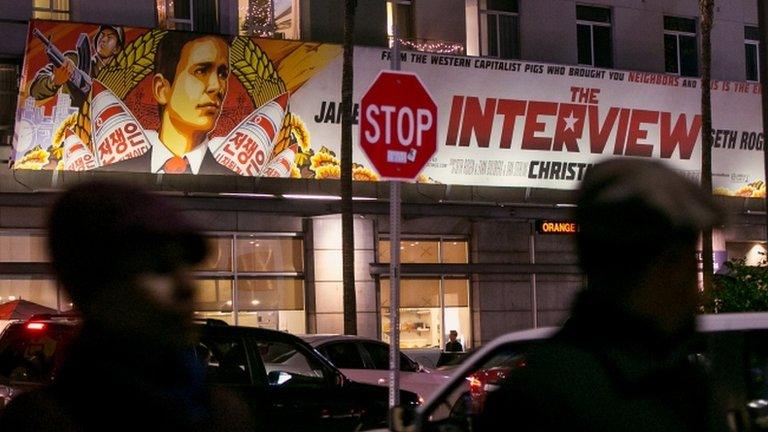Sony cyber-attack: North Korea faces new US sanctions
- Published
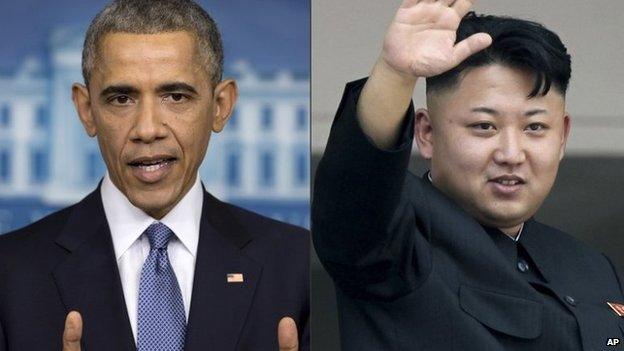
The White House said the cyber-attack was an attempt by North Korea to restrict free expression
The US has imposed new sanctions on North Korea in response to a cyber-attack against Sony Pictures Entertainment.
President Barack Obama signed an executive order on Friday allowing sanctions on three North Korean organisations and 10 individuals.
The White House said the move was a response to North Korea's "provocative, destabilising, and repressive actions".
US sanctions are already in place over North Korea's nuclear programme.
But Friday's actions are believed to be the first time the US has moved to punish any country for cyber-attacks on a US company.
Among those named in the sanctions were:
The Reconnaissance General Bureau, North Korea's primary intelligence organisation.
North Korea's primary arms dealer, the Korea Mining Development Trading Corporation (Komid).
Korea Tangun Trading Corporation, which supports North Korea's defence research.
Jang Song Chol: Named by the US Treasury as a Komid representative in Russia and a government official.
Kim Yong Chol: An official of the North Korean government, according to the US, and a Komid representative in Iran.
Ryu Jin and Kang Ryong: Komid officials and members of the North Korean government who are operating in Syria, according to the US.
White House officials told reporters the move was in response to the Sony hack, but the targets of the sanctions were not directly involved.
President Obama: "I don't think it was an act of war, I think it was an act of cyber-vandalism"
Instead, the sanctions are designed to further isolate North Korea's defence industry as deterrent for future cyber-attacks.
The FBI and President Obama have previously said they believe North Korea was behind the cyber-attack, although some cyber-security experts have cast doubt on this.
However, a senior White House official said it was extremely rare for the US to attribute cyber-attacks, and it was only done so because of the destructive nature of the attack, and because the White House saw it as "crossing a threshold".
The BBC's Kevin Kim in Seoul says North Korea has denied any involvement in the hacking and is therefore likely to respond angrily to the latest measures.
However, he says, as there is little trade between North Korea and the US the latest measures are unlikely to have any great effect, and will simply be heavy on symbolism.
Hack effect
Sony was embarrassed after a group calling itself Guardians of Peace leaked data from its computers, exposing emails and personal details.
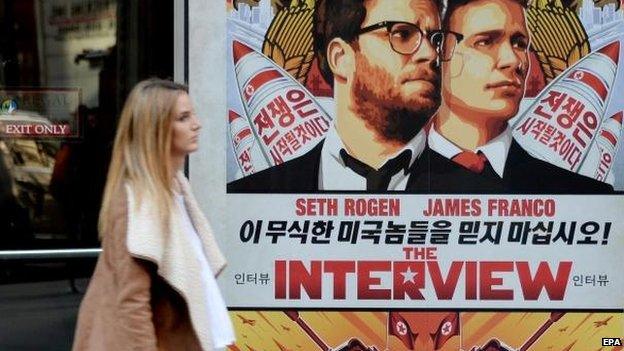
The Interview was later distributed online
The group later threatened cinema chains planning to screen Sony's satirical North Korea comedy, The Interview.
Oblique references to the 9/11 terror attacks prompted the cancellation of the film's nationwide release. A small number of independent cinemas did screen the film, and it was released online.
Announcing Friday's sanctions, the US said the apparent effort to stifle the movie release was part of the justification for the new restrictions.
"We take seriously North Korea's attack that aimed to create destructive financial effects on a US company and to threaten artists and other individuals with the goal of restricting their right to free expression," the White House said in a statement.
"Today's actions are the first aspect of our response."
North Korea has blamed the US for lengthy internet outages in the country last week.

Sony hack: The Interview saga
The Interview features James Franco and Seth Rogen as two journalists granted an audience with Mr Kim. The CIA then enlists the pair to assassinate him.
22 November: Sony computer systems hacked, exposing embarrassing emails and personal details about stars
7 December: North Korea denies accusations that it is behind the cyber-attack, but praises it as a "righteous deed"
16 December: "Guardians of Peace" hacker group threatens 9/11-type attack on cinemas showing film; New York premiere cancelled
17 December: Leading US cinema groups say they will not screen film; Sony cancels Christmas Day release
19 December: FBI concludes North Korea orchestrated hack; President Obama calls Sony cancellation "a mistake"
20 December: North Korea proposes joint inquiry with US into hacks, rejected by the US
22 December: North Korea suffers a severe internet outage
23 December: Sony confirms a limited Christmas Day release for The Interview
2 January: The US imposes sanctions on North Korea in response to the cyber-attack.
- Published29 December 2014
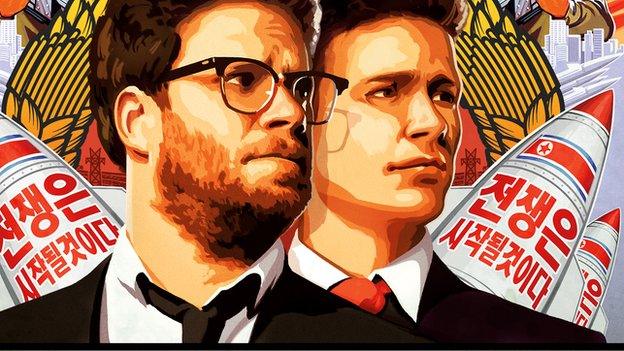
- Published27 December 2014
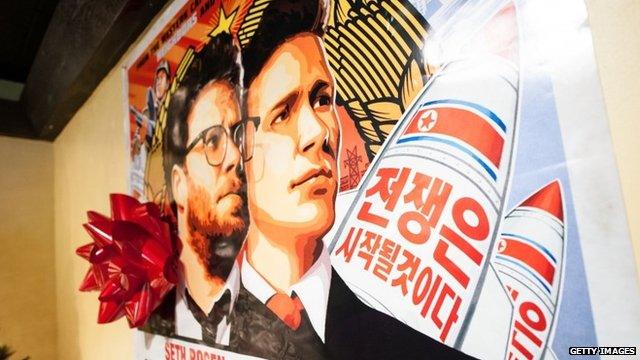
- Published29 December 2014
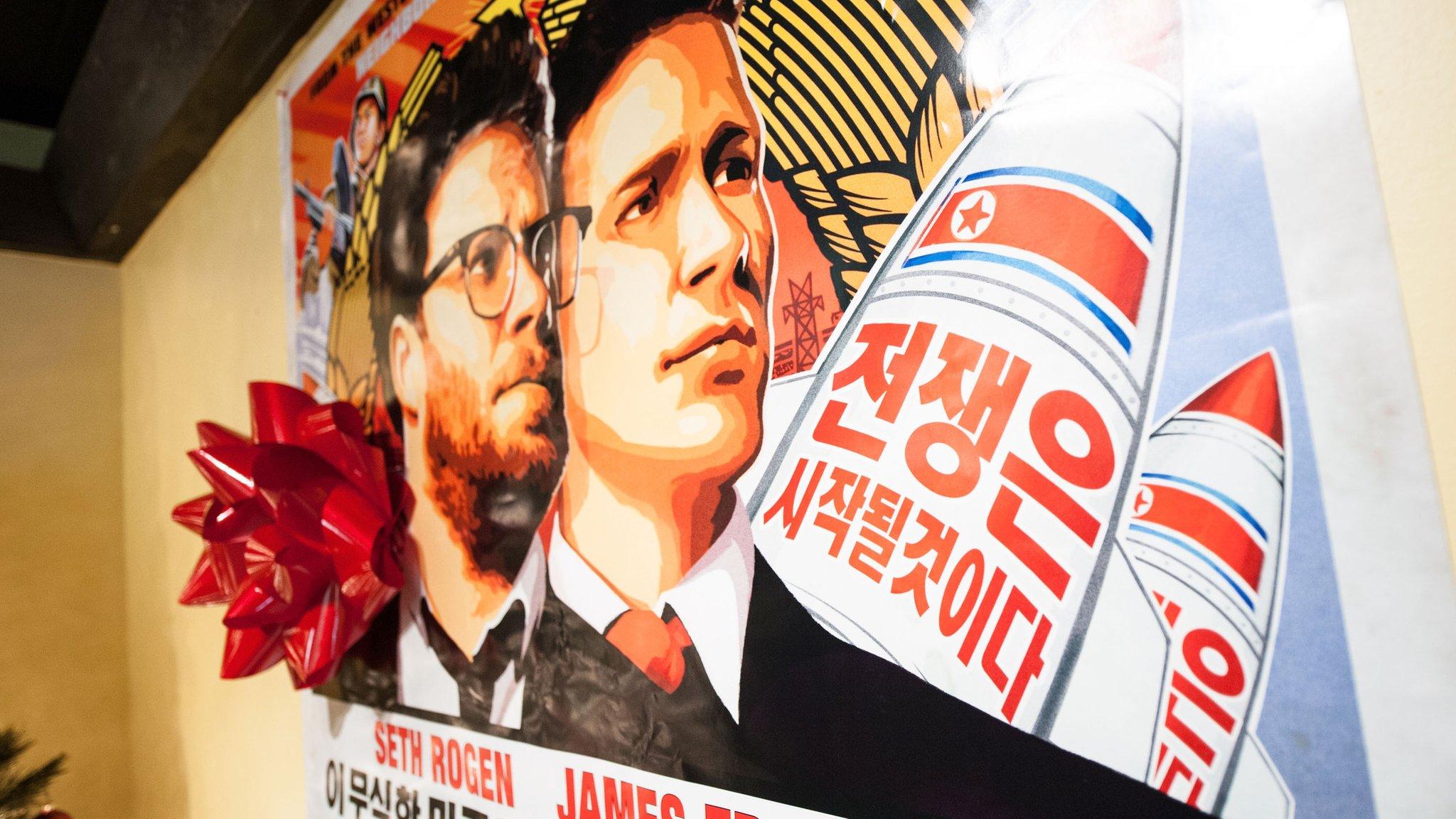
- Published19 December 2014
